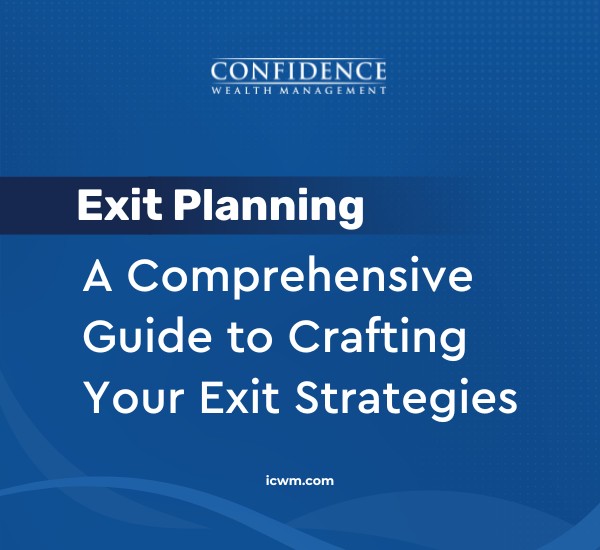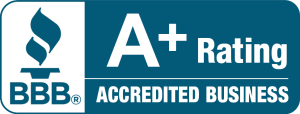Selecting beneficiaries for retirement benefits is different from choosing beneficiaries for other assets such as life insurance.
With retirement benefits, you need to know the impact of income tax and estate tax laws to select the right beneficiaries. Although taxes shouldn’t be the sole determining factor in naming your beneficiaries, ignoring the impact of taxes could lead you to make an incorrect choice.
In addition, if you’re married, beneficiary designations may affect the size of minimum required distributions to you from your IRAs and retirement plans while you’re alive.
Here are some things to consider when choosing a beneficiary for your IRA or 401(k).
Paying Income Tax on Most Retirement Distributions
Most inherited assets such as bank accounts, stocks, and real estate pass to your beneficiaries without income tax
being due.
However, that’s not usually the case with 401(k) plans and IRAs.
Beneficiaries pay ordinary income tax on distributions from pre-tax 401(k) accounts and traditional IRAs. With Roth IRAs and Roth401(k) accounts, however, your beneficiaries can receive the benefits free from income tax if all of the tax requirements are met.
That means you need to consider the impact of income taxes when designating beneficiaries for your 401(k) and IRA assets. For example, if one of your children inherits $100,000 cash from you and another child receives your pre-tax 401(k) account worth $100,000, they aren’t receiving the same amount.
The reason is that all distributions from the 401(k) plan will be subject to income tax at ordinary income tax rates, while the cash isn’t subject to income tax when it passes to your child upon your passing.
Similarly, if one of your children inherits your taxable traditional IRA and another child receives your income-tax-free Roth IRA, the bottom line is different for each of them.
Naming or Changing Beneficiaries
When you open up an IRA or begin participating in a 401(k), you are given a form to complete to name your beneficiaries. Changes are made in the same way, by completing a new beneficiary designation form. A will or trust does not override your beneficiary designation form.
However, spouses may have special rights under federal or state law. It’s a good idea to review your beneficiary designation form at least every two to three years.
Also, be sure to update your form to reflect changes in financial circumstances. Beneficiary designations are important estate planning documents. Seek legal advice as needed.
Designating Primary and Secondary Beneficiaries
If you don’t have a named beneficiary who survives you, your estate may end up as the beneficiary, which is not always the best result.
Your primary beneficiary is your first choice to receive retirement benefits. You can name more than one person or entity as your primary beneficiary.
If your primary beneficiary doesn’t survive you or decides to decline the benefits (the tax term for this is a disclaimer), then your secondary (or “contingent”) beneficiaries receive the benefits.
Having Multiple Beneficiaries
You can name more than one beneficiary to share in the proceeds. You just need to specify the percentage each beneficiary will receive (the shares do not have to be equal).
You should also state who will receive the proceeds should a beneficiary not survive you. In some cases, you’ll want to designate a different beneficiary for each account or have one account divided into sub accounts (with a beneficiary for each subaccount).
Keep in mind: Due to legislation passed at the end of 2019 (the SECURE Act), most non-spouse beneficiaries are required to empty their inherited retirement accounts within 10 years (previously, they could take distributions according to their
life expectancies).
Avoiding Gaps or Naming Your Estate as a Beneficiary
Probate is the court process by which assets are transferred from someone who has died to the heirs or beneficiaries entitled to those assets. There are two ways your retirement benefits could end up in your probate estate:
- You might name your estate as the beneficiary.
- If no named beneficiary survives you, your probate estate may end up as the beneficiary by default.
If your probate estate is your beneficiary, several problems can arise.
If your estate receives your retirement benefits, the opportunity to maximize tax deferral by spreading out distributions may be lost. In addition, probate can mean paying attorney’s and executor’s fees and delaying the distribution of benefits.
Naming Your Spouse as a Beneficiary
When it comes to taxes, your spouse is usually the best choice for a primary beneficiary.
A spousal beneficiary has the greatest flexibility for delaying distributions that are subject to income tax. In addition to rolling over your 401k or IRA to his or her IRA or plan, a surviving spouse can generally decide to treat your IRA as his or her own IRA.
These options can provide more tax and planning options. If your spouse is more than 10 years younger than you, then naming your spouse can also reduce the size of any required taxable distributions to you from retirement assets while you’re alive. This can allow more assets to stay in the retirement account longer and delay the payment of income tax
on distributions.
Although naming a surviving spouse can produce the best income tax result, that isn’t necessarily the case with death taxes. Your spouse can inherit an unlimited amount of assets and defer federal death tax until both of you are deceased (Note: special tax rules and requirements apply for a surviving spouse who is not a U.S. citizen).
If your spouse’s taxable estate for federal tax purposes at his or her passing exceeds the applicable exclusion amount, then federal death tax may be due.
In other words, one possible downside to naming your spouse as the primary beneficiary is that it may increase the size of your spouse’s estate for death tax purposes, which in turn may result in death tax or increased death tax when your
spouse passes.
Naming Other Individuals as Beneficiaries
You may have some limits on choosing beneficiaries other than your spouse.
No matter where you live, federal law dictates that your surviving spouse be the primary beneficiary of your 401(k) plan benefit unless your spouse signs a timely, effective written waiver. And if you live in one of the community property states, your spouse may have rights related to your IRA regardless of whether he or she is named as the primary beneficiary.
Keep in mind: A non-spouse beneficiary cannot roll over your 401(k) or IRA to his or her own IRA. However, a non-spouse beneficiary can directly roll over all or part of your 401(k) benefits to an inherited IRA.
Naming a Trust as a Beneficiary
You must follow special tax rules when naming a trust as a beneficiary, and there may be income tax complications. Seek legal advice before designating a trust as a beneficiary.
Naming a Charity as a Beneficiary
In general, naming a charity as the primary beneficiary will not affect required distributions to you during your lifetime.
However, having a charity named with other beneficiaries on the same asset could affect the tax-deferral possibilities of the non charitable beneficiaries, depending on how soon after your passing the charity receives its share of the benefits.
Conclusion
It can take a lot of rumination to decide on the right beneficiary.
As experienced financial professionals, we help clients like you figure out the best retirement plan for their situation, so that when they’re ready they can retire gracefully with peace of mind.
Please connect with us and let us help you plan for your dream retirement. We would be delighted to go on the journey with you.










